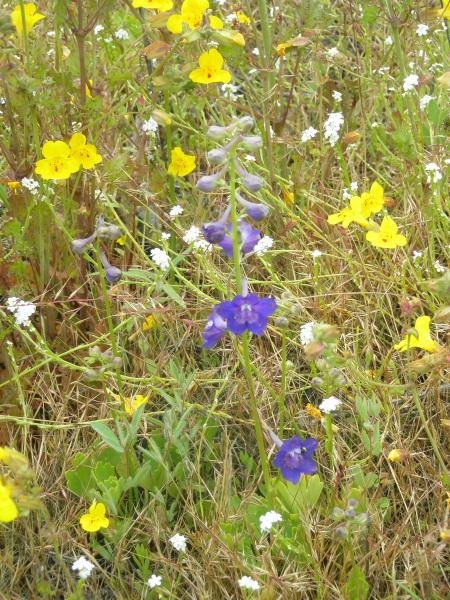EEB Thursday Seminar: Coexistence in diverse coflowering communities: importance of post-pollination interactions
Tia-Lynn Ashman, University of Pittsburgh
In the wild plants exist in multispecies groups and often share pollinators which can lead to exchange of pollen between different species. Interspecific pollen transfer leads to conspecific pollen loss and heterospecific pollen receipt, the latter of which leads to a unique suite of plant-plant interactions on the stigma. The question of how plant-pollinator interactions contribute to flowering plant communities has largely focused on plant traits that mediate pre-pollination interactions, and ignored the potential for traits that mediate these post-pollination processes. In this talk I describe how common and complex post-pollination interactions can be in the wild, especially in the diverse coflowering communities of the serpentine in California. I further explore the diverse effects of heterospecific pollen receipt on plant fitness, with a focus on understanding the traits that mediate this diversity. I put forward a hypothesis for the involvement of post-pollination interactions in plant species coexistence and test elements of it with data from the serpentine seep communities. By understanding the consequences of plant interactions via their shared pollinators we can better predict sustainability of natural flowering plant communities, as well as the consequences of disruption of these from global change, such as climate warming, invasive species, or pollinator decline.
Light refreshments served at 4 p.m.
Light refreshments served at 4 p.m.
| Building: | Chemistry Dow Lab |
|---|---|
| Website: | |
| Event Type: | Workshop / Seminar |
| Tags: | Biology, Discussion, Ecology, Research, Science |
| Source: | Happening @ Michigan from Ecology and Evolutionary Biology, EEB Thursday Seminars |


